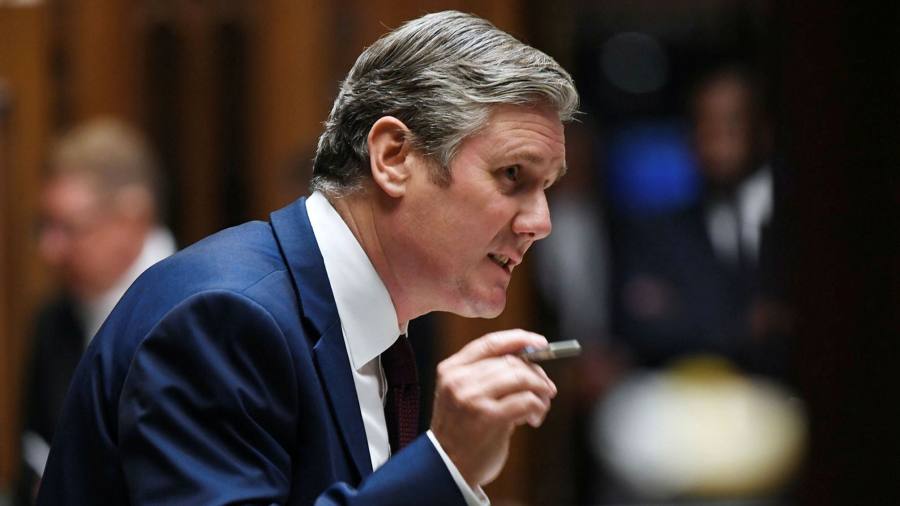[ad_1]
The UK’s main opposition party accused chancellor Rishi Sunak of failing to address “deep-rooted inequality†in his Budget on Wednesday, warning that a temporary extension to the uplift in the main benefits payment would only defer economic insecurity for millions.Â
Labour leader Sir Keir Starmer said the UK was facing the “worst economic crisis of any major economy†and as a result a “transformative†Budget was needed in order to build the foundations for a more “secure and prosperous†country.Â
The Budget, Starmer argued, failed to address the underlying problems in the social security system and lacked a “credible plan to tackle unemploymentâ€, following 10 years of wage stagnation and child poverty under a Conservative government.Â
As part of a wide-ranging package of measures aimed at supporting individuals and businesses hardest hit by the pandemic, Sunak announced an extension of the furlough scheme until September, an increase in the minimum wage in April and a temporary uplift in the universal credit welfare payment.
However, Starmer said the chancellor was “dragged — kicking and screaming†into the decision to extend the uplift, and warned that 6m families still faced the prospect of losing £1,000.
This sentiment was echoed by Ian Blackford, the Westminster leader of the Scottish National party, who criticised Sunak for not making the £20 uplift permanent and accused the Conservatives of offering the “bare minimumâ€.
“On the one hand, the UK government rightly tells people that they will follow data not dates when it comes to public health, but when it comes to financial support, the Tory policy is defined by dates, deadlines and cliff edges,†he said.
Starmer did, however, signal his support for the increase in corporation tax, following widespread unrest within Labour, as the party attempts to outline its economic agenda for the country.Â
Last month, in his first major economic speech as leader, Starmer said the party’s priority would “always be financial responsibility†and argued that it was not the time “for tax rises on businesses and familiesâ€.Â
However, in recent days influential members of the party — including former chair Ian Lavery — had urged the party to not oppose the proposed rise in corporation tax.
Speaking in the House of Commons, Starmer said the Conservatives’ “decade long corporation tax experiment†had failed and questioned why Sunak had decided to “plough ahead†with a £2bn council tax rise while the country was still in the “teeth†of the economic crisis.
The Labour leader also argued that it was a “disgrace†that the government had failed to “fix the glaring holes†in the coronavirus self-isolation payment system whereby individuals are eligible for a £500 payment if they have been contacted by NHS Test and Trace.
He added: “If the government was serious about tackling insecurity and those most at risk from Covid, this Budget would have fixed the broken system of statutory sick pay.â€
Sunak’s failure to mention Brexit or the government’s long term plans to support the NHS, key workers and the social care sector was also roundly criticised by opposition parties.
Blackford accused the government of not taking responsibility for the consequences of Brexit, adding: “It is clear that Scotland faces a choice of two futures: the long-term damage of Brexit and Tory austerity cuts at Westminster.â€
Starmer said the government had displayed a “blind faith†in freeports and argued that there ought to have been a greater focus on ensuring that the Brexit deal adequately supported manufacturers, small businesses and financial services.
Under a Labour government, he added, the NHS and care homes would be “front and centre†of the policy agenda.
[ad_2]
Source link






